BMW 7 Series vs Renault Rafale – Differences & prices compared
Compare performance, boot space, consumption and price in one view.
Find out now: which car is the better choice for you – BMW 7 Series or Renault Rafale?
The BMW 7 Series (Sedan) comes with a Plugin Hybrid or Diesel MHEV engine and Automatic transmission. In comparison, the Renault Rafale (SUV) features a Full Hybrid or Plugin Hybrid engine with Automatic transmission.
When it comes to boot capacity, the BMW 7 Series offers 540 L, while the Renault Rafale provides 627 L – depending on how much space you need. If you’re looking for more power, decide whether the 571 HP of the BMW 7 Series or the 300 HP of the Renault Rafale suits your needs better.
In terms of consumption, the values are 1 L per 100 km for the BMW 7 Series, and 0.60 L for the Renault Rafale.
Price-wise, the BMW 7 Series starts at 101300 £, while the Renault Rafale is available from 37500 £. Compare all the details and find out which model fits your lifestyle best!
BMW 7 Series
The BMW 7 Series represents the pinnacle of luxury and performance in the executive car segment, offering an unparalleled driving experience. Its elegant design combines aesthetic appeal with advanced technology, ensuring both comfort and connectivity for its passengers. With cutting-edge driver assistance systems, this flagship model showcases the brand's commitment to innovation and safety.
details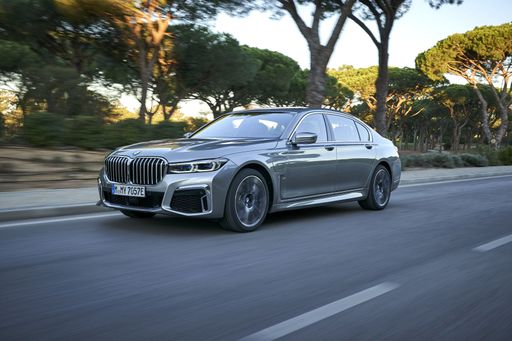 @ press.bmwgroup.com
@ press.bmwgroup.com
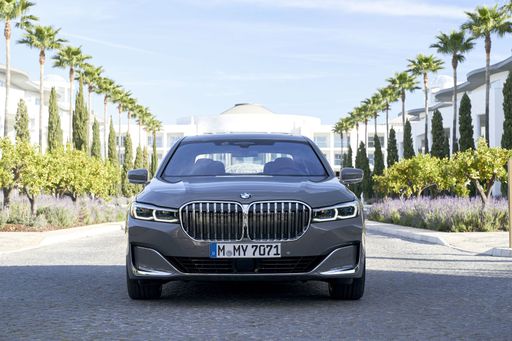 @ press.bmwgroup.com
@ press.bmwgroup.com
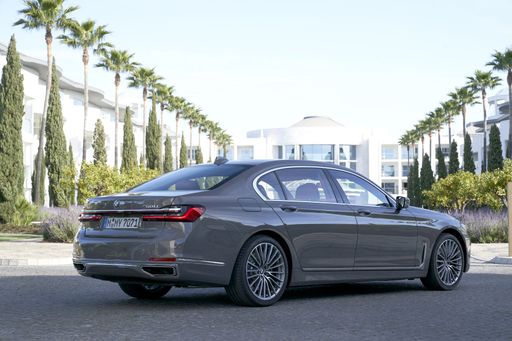 @ press.bmwgroup.com
@ press.bmwgroup.com
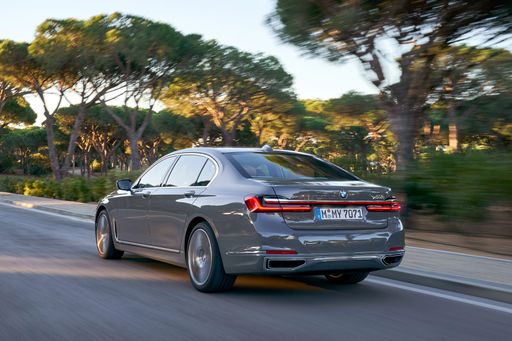 @ press.bmwgroup.com
@ press.bmwgroup.com
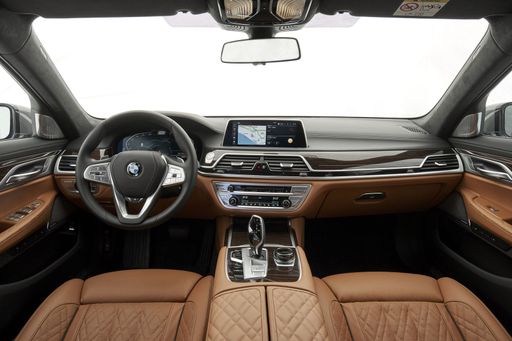 @ press.bmwgroup.com
@ press.bmwgroup.com
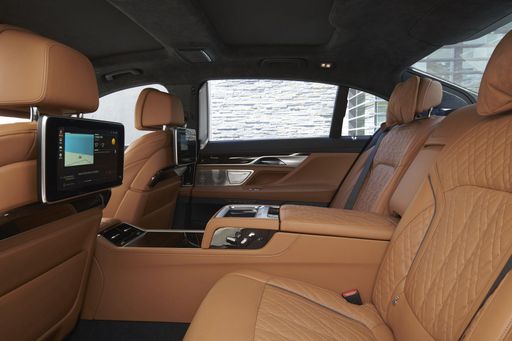 @ press.bmwgroup.com
@ press.bmwgroup.com
Renault Rafale
The Renault Rafale captivates with its sleek design and dynamic presence on the road, embodying the perfect blend of elegance and performance. Inside, the car offers a spacious and well-appointed cabin, featuring premium materials and cutting-edge technology to enhance the driving experience. Its agile handling and responsive capabilities make it a compelling choice for those seeking a refined yet thrilling ride.
details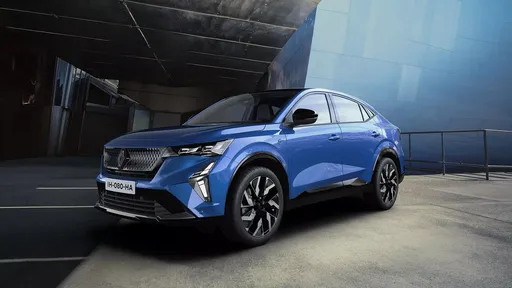 @ presse.renault.de
@ presse.renault.de
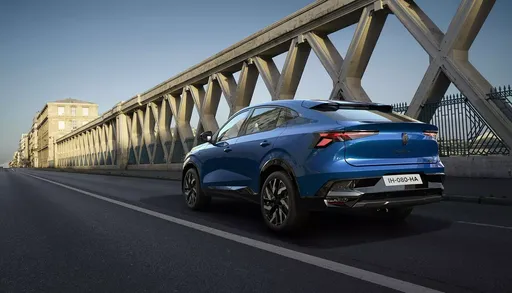 @ presse.renault.de
@ presse.renault.de
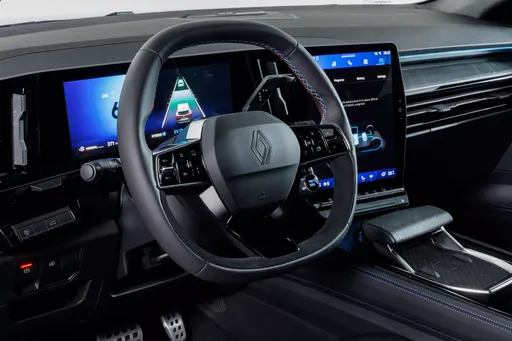 @ presse.renault.de
@ presse.renault.de

|

|
|
|
|
Costs and Consumption |
|
|---|---|
|
Price
101300 - 127300 £
|
Price
37500 - 49500 £
|
|
Consumption L/100km
1 - 6.1 L
|
Consumption L/100km
0.6 - 4.7 L
|
|
Consumption kWh/100km
-
|
Consumption kWh/100km
-
|
|
Electric Range
80 km
|
Electric Range
97 km
|
|
Battery Capacity
17.60 kWh
|
Battery Capacity
-
|
|
co2
23 - 160 g/km
|
co2
14 - 106 g/km
|
|
Fuel tank capacity
65 - 74 L
|
Fuel tank capacity
55 L
|
Dimensions and Body |
|
|---|---|
|
Body Type
Sedan
|
Body Type
SUV
|
|
Seats
5
|
Seats
5
|
|
Doors
4
|
Doors
5
|
|
Curb weight
2255 - 2525 kg
|
Curb weight
1728 - 2025 kg
|
|
Trunk capacity
525 - 540 L
|
Trunk capacity
539 - 627 L
|
|
Length
5391 mm
|
Length
4710 mm
|
|
Width
1950 mm
|
Width
1886 mm
|
|
Height
1544 mm
|
Height
1613 mm
|
|
Payload
605 - 665 kg
|
Payload
415 - 447 kg
|
Engine and Performance |
|
|---|---|
|
Engine Type
Plugin Hybrid, Diesel MHEV
|
Engine Type
Full Hybrid, Plugin Hybrid
|
|
Transmission
Automatic
|
Transmission
Automatic
|
|
Transmission Detail
Automatic Gearbox
|
Transmission Detail
Automatic Gearbox
|
|
Drive Type
All-Wheel Drive
|
Drive Type
Front-Wheel Drive, All-Wheel Drive
|
|
Power HP
300 - 571 HP
|
Power HP
200 - 300 HP
|
|
Acceleration 0-100km/h
4.3 - 5.8 s
|
Acceleration 0-100km/h
6.4 - 8.9 s
|
|
Max Speed
250 km/h
|
Max Speed
180 km/h
|
|
Torque
670 - 800 Nm
|
Torque
-
|
|
Number of Cylinders
6
|
Number of Cylinders
3
|
|
Power kW
220 - 420 kW
|
Power kW
147 - 221 kW
|
|
Engine capacity
2993 - 2998 cm3
|
Engine capacity
1199 cm3
|
General |
|
|---|---|
|
Model Year
2023 - 2024
|
Model Year
2024
|
|
CO2 Efficiency Class
B, F
|
CO2 Efficiency Class
C, B
|
|
Brand
BMW
|
Brand
Renault
|
BMW 7 Series
Introduction to the BMW 7 Series
The BMW 7 Series has long been synonymous with luxury, performance, and cutting-edge technology. The latest versions continue this tradition, integrating sophisticated hybrid technology with distinguished design and powerful performance. Whether cruising the motorway or navigating urban landscapes, the BMW 7 Series offers an exceptional driving experience.
Technical Specifications
The 2023 BMW 7 Series boasts a range of impressive specifications and features. The engine options, which include both diesel mild-hybrid and plug-in hybrid variants, provide flexibility for different driving needs. With power outputs ranging from 300 PS to a remarkable 571 PS, the 7 Series does not compromise on performance. Coupled with intelligent all-wheel drive and an automatic transmission, it assures smooth and responsive handling.
Fuel efficiency is another highlight, with the series achieving consumption figures as low as 1.1 L/100km for the plug-in hybrid models, showcasing the brand's commitment to sustainability without sacrificing performance.
Advanced Hybrid Technology
The integration of mild-hybrid and plug-in hybrid systems into the 7 Series marks a significant advancement in BMW's pursuit of greener motoring. The plug-in hybrid variants, with a battery capacity of 18.7 kWh, offer an all-electric range of up to 79 km - ideal for city driving. This hybrid setup not only reduces emissions but also enhances acceleration, delivering a swift 0-100 km/h time ranging from 4.3 to 5.8 seconds.
Luxury and Comfort
The BMW 7 Series epitomises luxury, featuring an interior designed for comfort and convenience. Standard equipment includes high-grade materials, advanced connectivity, and cutting-edge infotainment systems. The cabin is spacious, with ample room for five passengers and a generous boot capacity of up to 540 litres, ensuring that long journeys are as comfortable as they are efficient.
Safety and Innovation
Safety remains paramount in the BMW 7 Series, with an array of features designed to protect occupants and enhance driving confidence. This includes state-of-the-art driver assistance systems, which provide support in various driving conditions, thus ensuring a safer driving experience.
In conclusion, the BMW 7 Series stands as a testament to automotive innovation, blending traditional luxury with modern efficiency and performance. It's a fine choice for those who seek the pinnacle of automotive engineering and technology.
Renault Rafale
Introducing the Renault Rafale: A Technological Marvel
Renault's 2024 Rafale is a showpiece of modern automotive engineering, residing elegantly within the SUV category. Boasting sleek designs alongside groundbreaking hybrid technology, the Renault Rafale promises not only to meet the demands of contemporary drivers but to exceed them.
Powertrain and Performance
Under the bonnet of the Renault Rafale, you’ll find a range of hybrid powertrain options, both full hybrid and plug-in hybrid configurations. These systems combine efficient combustion engines with electric motors, outputting between 200 and 300 PS (147 to 221 kW) to deliver dynamic performance with eco-friendly emissions, achieving fuel efficacies as low as 0.6 L/100 km.
The vehicle's top speed is 180 km/h, and drivers can expect rapid acceleration from 0 to 100 km/h in just 6.4 to 8.9 seconds, owing to the automatic transmission and refined front-wheel-drive mechanism.
Technical Specifications
Measuring an extensive 4710 mm in length, 1886 mm in width, and with a height of 1613 mm, the Rafale’s dimensions underscore its commanding road presence. Occupants benefit from a spacious interior, seating five comfortably, with an ample boot space ranging from 539 to 627 litres.
The vehicle's build focuses on a blend of lightweight materials and robust structural engineering, contributing to a kerb weight between 1728 and 2025 kg, and regulated CO2 outputs of 14 to 106 g/km. With its efficient hybrid motors, the car delivers on torque, although it is officially rated at 0 Nm due to the nature of electric drivetrain torque measurement.
Innovative Features and Design
The Renault Rafale’s innovation extends beyond its engine bay. It features a multi-mode automatic gearbox, enabling seamless transitions between various driving modes for optimal performance under different conditions. Available in Esprit Alpine, Techno, and Atelier Alpine trims, buyers are offered choices that refine the driving experience on every level.
The sophisticated exterior is matched by an equally advanced cockpit, integrating cutting-edge digital interfaces to enhance driver engagement and passenger comfort. From its infotainment system to advanced driver assistance features, the Rafale represents a marriage of futuristic functionality and luxury.
Environmental Efficiency and Pricing
The Rafale's eco-credentials are further evidenced by its competitive CO2 efficiency classes ranging from C to B, demonstrating Renault’s commitment to reducing environmental impact. The plug-in hybrid variant also offers an impressive electric range of up to 97 km, perfect for urban commuters looking to minimise fuel consumption.
Priced between €43,800 and €57,800, the Renault Rafale positions itself attractively within the premium hybrid SUV segment, offering both value and advanced technology for the discerning eco-conscious driver.
Conclusion
The Renault Rafale SUV embodies a leap forward in automotive design and engineering. It’s not just a vehicle; it’s a statement on efficiency, performance, and innovation, poised to capture the attention of drivers ready to embrace the future of motoring.
The prices and data displayed are estimates based on German list prices and may vary by country. This information is not legally binding.
